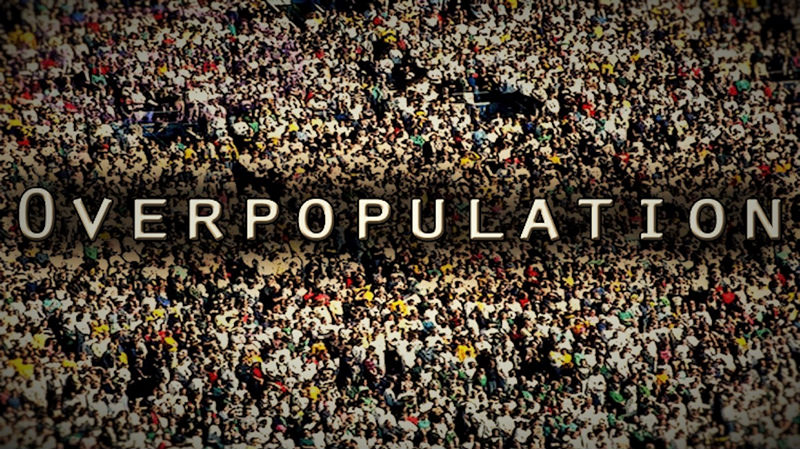(单词翻译:单击)
Since 1800, the global population has risen from just 1 billion humans to over 7.8 BILLION in 2020.
自1800年以来,全球人口从仅有10亿人增加到2020年的78亿人以上。
And still, over four babies are born every second.
每秒钟就有四个以上的婴儿出生。
That's around 390,000 new humans a day!
每天大约诞生39万个新生儿!
So, on a planet with dwindling resources and an increasing strain on natural systems ... is curbing our booming population the key to solving our environmental woes?
因此,在一个资源日益减少、自然系统日益紧张的星球上……遏制人口增长是解决环境问题的关键吗?
Mathematically, we know that more people means more demand for Earth's natural resources.
从数学上讲,我们知道更多的人意味着对地球自然资源的更多需求。
It can be simplified into this equation: population times affluence times technology equals impact on the environment.
它可以简化为这样一个等式:人口乘以富裕乘以技术等于对环境的影响。
So, the basic argument that less people would mean less greenhouse gases, less pollution, less habitat destruction makes logical sense.
因此,人口减少意味着温室气体减少、污染减少、栖息地破坏减少的基本论点是合乎逻辑的。
But only on the surface.
但这只是表面现象。
Because notice that other key variable in the equation. Affluence.
因为,请注意等式中的另一个关键变量:富裕。
The more money populations have to burn, the more fossil fuels are burned along with it.
人口需要消耗的金钱越多,随之而来的化石燃料消耗就越多。
In 2018, just North America and China were responsible for almost half of the world's CO2 emissions.
2018年,全球二氧化碳排放量几乎有一半是由北美洲和中国造成的。
These are also the countries with the highest concentrations of the world's wealthiest people.
这些国家也是世界上最富有人口最集中的国家。

And get this-their populations are living longer and having fewer babies, so their population growth is slowing down.
他们的人口寿命更长,生育的孩子更少,所以他们的人口增长正在放缓。
By contrast, the poorest half of the world - where most global population growth is currently concentrated - produces only 10% of the world's CO2 emissions.
相比之下,世界上最贫穷的一半——目前全球人口增长最集中的地方——产生的二氧化碳排放量仅占全球的10%。
These populations typically lack the technology and wealth that result in high energy expenditure, increased industrialization, and pollution.
这些人口通常缺乏技术和财富,导致能源消耗高、工业化加剧和污染。
So, in climate change projections that take these imbalances into account, it's been shown that redistributing wealth -
因此,在考虑到这些不平衡的气候变化预测中,已经表明财富再分配——
so, reducing both extreme wealth and extreme poverty - has as much impact on carbon emissions as reducing overall population would.
减少极端财富和极端贫困——对碳排放的影响与减少总人口的影响一样大。
Let's continue taking the climate crisis as our example.
让我们继续以气候危机为例。
The idea that less people equals less climate change works in theory - but in practice, calculations show that's not the case.
人口减少就意味着气候变化减少的观点在理论上是可行的,但在实践中,计算表明事实并非如此。
Even in projected scenarios where a reduction in population does make a difference in emissions, it's not enough of a difference to affect projected temperature rise.
即使在人口减少确实会影响排放量的预期情景中,这种差异也不足以影响预期气温上升。
To put it bluntly, no amount of population reduction would achieve the reduction in emissions necessary to keep global warming below 2 degrees Celsius in our near future.
说白了,再多的人口减少也无法实现在不久的将来将全球变暖控制在2摄氏度以下所需的减排。
You may have also heard that 'Just 100 companies produce 71% of the world's emissions.'
你可能也听说过,“100家公司的排放量占了全球的71%。”
And this is true, but if you take a closer look at that list, you'll find that those companies are oil and gas conglomerates.
这是真的,但如果你仔细看看这个名单,你会发现这些公司都是石油和天然气集团。


